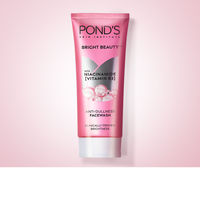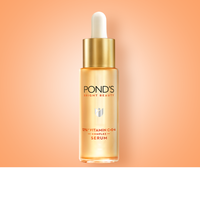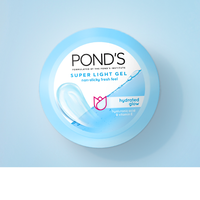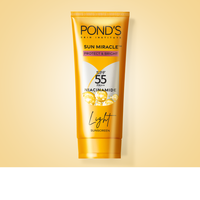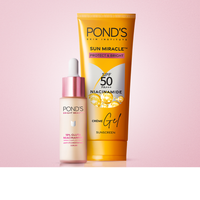Filter
Price
Product Type
Faqs
1. Are face masks good for your skin?
Absolutely. Face masks are not just beauty products, they are a potent and perfect tool to help you with your skincare woes. Right from removing excess oil to moisturising and hydrating your skin, face masks can do it all.
2. Can I use a face mask daily?
Depending on the type of skin you have, you can use a face mask once or even three times a week. Use it more frequently if your skin is oily; use it less if your skin is normal or dry.
3. How many hours should we keep a face mask?
The majority of sheet masks come with instructions that outline the amount of time they should be worn. Almost all sheet masks last for between 15 and 20 minutes. Some moisturising masks can be applied overnight, but stronger solutions with active ingredients should not be left on for any longer than is advised.
4. Can I use cream after a face mask?
Yes, you can. In fact it is recommended to use a moisturiser or cream after removing your face mask. This will help your skin stay hydrated, thus maximising the effects of the face mask.
5. Can I use a face mask if I have pimples?
While masking can be an excellent strategy to stop breakouts, if you have pimples, you should only mask once or twice each week. This is due to the fact that you don't want to entirely deplete your skin's natural defenses against acne and pimples.
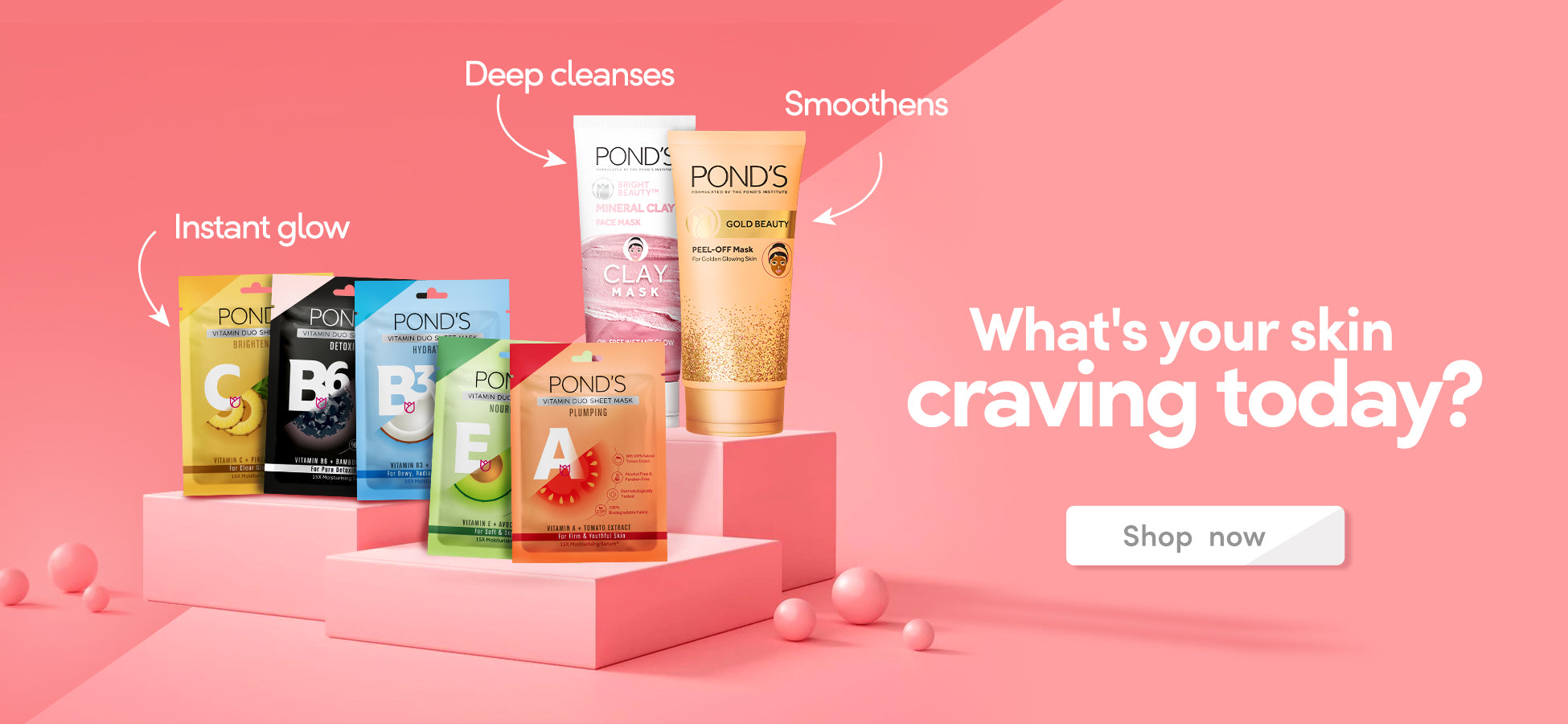
More about Pond’s Face Masks
POND'S Serum Boost Sunscreen is a game-changing skincare product range that not only protects your skin from sun damage but also helps to fade dark patches while brightening your complexion from within. This innovative sunscreen range features a variety of product formulations such as gel-based sunscreen, sunscreen serum, and sunscreen creams.
Face Masks for Every Skin Type and Concern
Everyone has a skincare routine that is tailored according to their skin type and needs. While face creams, cleansers, and moisturisers are a few essential items in everyone's skincare kit, there is one item that has historically been a dark horse in the field of skin science. Drum rolls: A face mask! Face masks used to be one of those extravagances that you would save for a sleepover or special at-home spa night. They are typically a staple of any beauty regimen today. Face masks provide concentrated treatments that specifically target problems by creating a semi-occlusive environment to assist drive products into the skin. In essence, face masks are even more effective than your necessary serums and moisturising creams and provide your skin a rapid boost. Active substances that treat problems including hydration, exfoliation, pore cleaning, or brightness are frequently used in their formulation. And although we all adore the different types of face masks, we all have a particular favourite. The following sections will cover the different varieties of face masks, how to use them and their benefits of incorporating them in your skincare regimen. Let's begin!
Sheet mask
The most popular masks are sheet masks. They are tissues that include substances that are good for the skin and are loaded with water-based serums. Typically, active compounds like hyaluronic acid are combined with plant extracts and vitamins. Every sheet mask has a particular treatment in mind when it is created.
Cream mask
A cream face mask is a one-time-use product that you apply on your freshly cleansed skin. Cream masks provide deep moisturising and are great for dry skin.
Peel-off mask
If you are looking for a deep cleansing, then peel-off mask is your go-to product. Peel-off masks exfoliate dead skin cells and give your skin an instantly radiant glow. The most popular kind of masking, which helps to cleanse and detoxify your skin, is a charcoal peel-off mask.
Gel mask
You require a gel mask if your skin is itchy and inflamed. Antioxidant-rich components in these clear gel masks will moisturise and calm your skin to lessen inflammation and redness.
Scrub mask
Your skin may occasionally require a deep exfoliation. Scrub masks may be the best option for you in these circumstances. If you have dry or flaky skin, they can help eliminate dead skin cells and enhance the texture of your skin.
Clay mask
Clay masks are thick in texture. As one of the earliest kinds of face masks, they have been used for ages to revitalise and repair skin. Clay is the ideal remedy for oily skin, while mud functions as a skin-healing agent.
Hydrogel mask
A soothing hydrogel mask will revitalise your skin. This kind of face mask is designed specifically to target regions like your neck or under-eye area. Usually produced from a water-based solution, the gel texture hydrates and calms your skin.
Sheet mask
The most popular masks are sheet masks. They are tissues that include substances that are good for the skin and are loaded with water-based serums. Typically, active compounds like hyaluronic acid are combined with plant extracts and vitamins. Every sheet mask has a particular treatment in mind when it is created.
Cream mask
A cream face mask is a one-time-use product that you apply on your freshly cleansed skin. Cream masks provide deep moisturising and are great for dry skin.
Peel-off mask
If you are looking for a deep cleansing, then peel-off mask is your go-to product. Peel-off masks exfoliate dead skin cells and give your skin an instantly radiant glow. The most popular kind of masking, which helps to cleanse and detoxify your skin, is a charcoal peel-off mask.
Gel mask
You require a gel mask if your skin is itchy and inflamed. Antioxidant-rich components in these clear gel masks will moisturise and calm your skin to lessen inflammation and redness.
Scrub mask
Your skin may occasionally require a deep exfoliation. Scrub masks may be the best option for you in these circumstances. If you have dry or flaky skin, they can help eliminate dead skin cells and enhance the texture of your skin.
Clay mask
Clay masks are thick in texture. As one of the earliest kinds of face masks, they have been used for ages to revitalise and repair skin. Clay is the ideal remedy for oily skin, while mud functions as a skin-healing agent.
Hydrogel mask
A soothing hydrogel mask will revitalise your skin. This kind of face mask is designed specifically to target regions like your neck or under-eye area. Usually produced from a water-based solution, the gel texture hydrates and calms your skin.
Types of Face Mask
A skin cleanser is specially formulated to be more gentle and can be used daily for any type of skin. The best part is that cleansers do not contain sodium lauryl sulphate, a typical soap ingredient that might irritate your skin. Besides, cleansers also provide a clear canvas for you to apply products like facial moisturiser or makeup.
How to Choose the Right Face Mask Based on Skin Type?
When looking for a face mask for your skin type, it is natural to feel a little overwhelmed due to the availability of its vast variety. But, fret not! We are here to assist you.
Face Mask for Oily Skin
If you have oily skin, you are aware of how difficult it may be to find solutions that will soak extra oil without removing your skin's natural oils. Of course, not over-exfoliating the skin is the goal. For this reason, seek for components that hydrate the skin while simultaneously gently exfoliating it. Glycolic, salicylic, and lactic acid face masks are effective at clearing clogged pores. Your skin gets moisturised by these components, which also aid in preventing acne. So, for those with oily skin, charcoal and clay masks may be an excellent choice.
Face Mask for Normal Skin
People with normal skin types have a tonne of options when it comes to face masks. Whether you are looking for a face mask for men or face mask for women, folks with normal skin can pick whatever face mask they desire from a selection that includes smoothing, moisturising, brightening, tightening, and plumping face masks. Whenever your skin requires assistance, pick and choose the appropriate product. For instance, if there is too much texture on the skin, choose a cream face mask instead of a gel mask because it will be more rich.
Face Mask for Sensitive Skin
The most important thing for persons with sensitive skin is to do a patch test for each product before using it. Even the mildest substance might cause the skin to become irritated. The same natural and botanical compounds that are sourced from plants and are effective for all other skin types can nonetheless irritate those with sensitive skin. Avoid using masks that include any amount of alcohol or fragrance. However, niacinamide-containing treatments typically perform well for sensitive skin.
Face Mask for Dry Skin
Those with dry skin may experience a little tightness and discomfort due to a lack of moisture in their skin. But when it comes to plumping up the skin and enhancing the hydrolipidic barrier, there is nothing better than a moisturising and nourishing face mask for dry skin. However, it's crucial to make sure they don't clog pores and cause acne. Hyaluronic acid, ceramides, and non-comedogenic oils are the most effective treatments for dry skin. Additionally, stay away from any chemical like artificial perfumes that can trigger inflammation.
Face Mask for Combination Skin
People with combination skin typically have oily T-zones and dry cheeks. For those with this skin condition, the multi-masking idea works well. Avoid using face mask designed for oily skin on the T-zone, and avoid using abrasive exfoliants on the dry area. If you apply an exfoliating mask, moisturise your face right away. Use various clay masks on various skin types because they are filled with soothing components that can be used on both dry and oily face types.
Face Mask for Oily Skin
If you have oily skin, you are aware of how difficult it may be to find solutions that will soak extra oil without removing your skin's natural oils. Of course, not over-exfoliating the skin is the goal. For this reason, seek for components that hydrate the skin while simultaneously gently exfoliating it. Glycolic, salicylic, and lactic acid face masks are effective at clearing clogged pores. Your skin gets moisturised by these components, which also aid in preventing acne. So, for those with oily skin, charcoal and clay masks may be an excellent choice.
Face Mask for Normal Skin
People with normal skin types have a tonne of options when it comes to face masks. Whether you are looking for a face mask for men or face mask for women, folks with normal skin can pick whatever face mask they desire from a selection that includes smoothing, moisturising, brightening, tightening, and plumping face masks. Whenever your skin requires assistance, pick and choose the appropriate product. For instance, if there is too much texture on the skin, choose a cream face mask instead of a gel mask because it will be more rich.
Face Mask for Sensitive Skin
The most important thing for persons with sensitive skin is to do a patch test for each product before using it. Even the mildest substance might cause the skin to become irritated. The same natural and botanical compounds that are sourced from plants and are effective for all other skin types can nonetheless irritate those with sensitive skin. Avoid using masks that include any amount of alcohol or fragrance. However, niacinamide-containing treatments typically perform well for sensitive skin.
Face Mask for Dry Skin
Those with dry skin may experience a little tightness and discomfort due to a lack of moisture in their skin. But when it comes to plumping up the skin and enhancing the hydrolipidic barrier, there is nothing better than a moisturising and nourishing face mask for dry skin. However, it's crucial to make sure they don't clog pores and cause acne. Hyaluronic acid, ceramides, and non-comedogenic oils are the most effective treatments for dry skin. Additionally, stay away from any chemical like artificial perfumes that can trigger inflammation.
Face Mask for Combination Skin
People with combination skin typically have oily T-zones and dry cheeks. For those with this skin condition, the multi-masking idea works well. Avoid using face mask designed for oily skin on the T-zone, and avoid using abrasive exfoliants on the dry area. If you apply an exfoliating mask, moisturise your face right away. Use various clay masks on various skin types because they are filled with soothing components that can be used on both dry and oily face types.
Step 1
Cleanse your face thoroughly with tepid water.
Step 2
The face mask should be unwrapped from its packaging without tearing.
Step 3
Position the mask so that it matches the form of your face, including your eyes, nose, and mouth.
Step 4
When the mask is evenly adhered, gently push it to the shape of your face.
Step 5
Leave it on your face for 10 to 15 minutes for the ingredients to soak into your skin.
Step 6
Avoid being overly hard when taking off your face mask. To carefully wash the mask off, use lots of water. Use a towel to gently pat dry your face.
Step 1
Cleanse your face thoroughly with tepid water.
Step 2
The face mask should be unwrapped from its packaging without tearing.
Step 3
Position the mask so that it matches the form of your face, including your eyes, nose, and mouth.
Step 4
When the mask is evenly adhered, gently push it to the shape of your face.
Step 5
Leave it on your face for 10 to 15 minutes for the ingredients to soak into your skin.
Step 6
Avoid being overly hard when taking off your face mask. To carefully wash the mask off, use lots of water. Use a towel to gently pat dry your face.
How to Use a Face Mask?
The skin's typical pH ranges from 4.5 to 6.5. When you clean your skin, the pH of the skin, the moisture barrier, and the cleanser interact with one another. Soaps include abrasive surfactants that have the ability to change the skin barrier and raise the pH of the skin, raising the risk of dryness and irritation. Gel cream and foam cleansers made without soap are designed to be just as effective but kinder because they don't damage the skin's natural barrier or significantly alter the pH of the skin.
Tips
Apply a thin, even coating of cream or gel to your face if you are using a gel or cream mask. Keep the product away from the areas around your eyes, lips, and brows.
Benefits of Using a Face Mask
Following are some of the benefits of using a face mask. Face masks have a healing effect. They not only improve your skin but also stimulate your senses, which in turn also lifts your spirits. A quality face mask can assist in removing pollutants that are buried beneath the epidermis outermost layers. Whether you are using a face mask for glowing skin or dry skin, they are amazing at offering a deep cleansing, which results in an improvement in the look and feel of pores. Using a clay-based mask can help eliminate debris and absorb extra oil. Additionally, it can assist in removing the accumulation of dead skin cells that develop on our skin. All the rest of your skincare products function more effectively when you use a face mask regularly. A face mask is essential if you want your overnight and daytime skincare products to penetrate your skin deeper and more quickly. Face masks containing substances high in antioxidants can moisturise your skin and hasten its healing process.
Following are some of the benefits of using a face mask. Face masks have a healing effect. They not only improve your skin but also stimulate your senses, which in turn also lifts your spirits. A quality face mask can assist in removing pollutants that are buried beneath the epidermis outermost layers. Whether you are using a face mask for glowing skin or dry skin, they are amazing at offering a deep cleansing, which results in an improvement in the look and feel of pores. Using a clay-based mask can help eliminate debris and absorb extra oil. Additionally, it can assist in removing the accumulation of dead skin cells that develop on our skin. All the rest of your skincare products function more effectively when you use a face mask regularly. A face mask is essential if you want your overnight and daytime skincare products to penetrate your skin deeper and more quickly. Face masks containing substances high in antioxidants can moisturise your skin and hasten its healing process.
Know your skin type
Determine if your skin is oily, dry, combination, or sensitive. Different masks cater to different skin types for optimal results. For example, you may want to use a clay face mask to address your oily skin concerns.
Address specific skin concerns
Identify your primary concerns like acne, ageing, hydration, or brightening. Look for masks that target those issues.
Check the formulation
Search for face masks with natural ingredients and avoid harsh chemicals like artificial fragrances or alcohol that may irritate your skin. Consider options with antioxidants and vitamins for added benefits.
Consider the price
Set a budget and compare different options within that range. Expensive doesn't always mean better, so find a face mask that fits your budget and requirements. Face masks are valuable additions to any skincare routine. By choosing masks tailored to your skin type and concerns, with natural formulations and a reasonable price, you can effectively address specific issues and boost your skin's health. Consistent use can lead to a refreshed and revitalized complexion.
Know your skin type
Determine if your skin is oily, dry, combination, or sensitive. Different masks cater to different skin types for optimal results. For example, you may want to use a clay face mask to address your oily skin concerns.
Address specific skin concerns
Identify your primary concerns like acne, ageing, hydration, or brightening. Look for masks that target those issues.
Check the formulation
Search for face masks with natural ingredients and avoid harsh chemicals like artificial fragrances or alcohol that may irritate your skin. Consider options with antioxidants and vitamins for added benefits.
Consider the price
Set a budget and compare different options within that range. Expensive doesn't always mean better, so find a face mask that fits your budget and requirements. Face masks are valuable additions to any skincare routine. By choosing masks tailored to your skin type and concerns, with natural formulations and a reasonable price, you can effectively address specific issues and boost your skin's health. Consistent use can lead to a refreshed and revitalized complexion.


